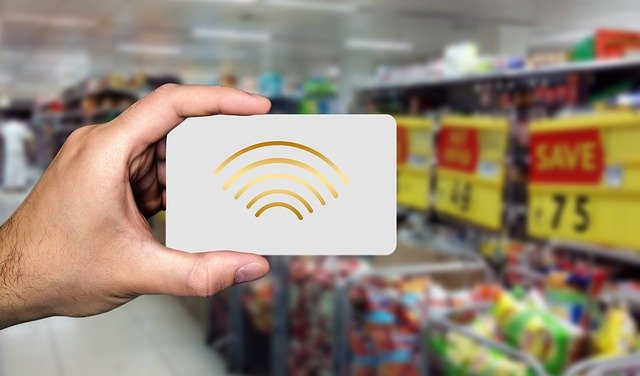Are you ready for a Cashless Future

Have you ever imagined a world without the feel of paper or plastic feel of a polymer note? Well, if you haven’t, you should probably start now because a cashless society might be closer than you think.
Some European countries like Sweden are already way ahead of the curve. Cash payments are already less than 1% of the total transaction settlements. But why has cash gotten such a bad rap? We attempt to answer this question in this article and move on to some thoughts on the future of payments.
Why No one Wants to Deal With Cash Anymore
The case for a cashless society has many affirmative points. These advantages are for both businesses and customers. The bulk of purchasing transactions is being conducted online. 82% of all UK households made online purchases in 2019. Billions of pounds are changing virtual hands every day. Solutions have been created to help businesses sell on the Internet. Companies have also seen the benefit of not holding cash onsite. Security concerns are among the key drivers for adopting other payment options. It is an expense to set up the necessary infrastructure to handle cash and also get the appropriate business insurance. So what are the options available?
Debit Cards Reign Supreme in the UK
The demise of cash as the default method for making payments has been brewing for a while. Many had expected that by 2019 the UK would use more debit cards than cash. The speculators were right, but the change came a year earlier. Debit card payments were more than cash for the first in the UK in 2018. Customers were mainly using the “tap and go” contactless cards to make payments for everyday household items.
The latest figures show that 1.3 billion transactions were made via debit cards online in June 2020. The trend is marching forward as the UK society moves away from dealing with cash. Debit cards provide an easy way to transact. There is no reason to carry large sums of cash. They also give you direct access to the funds in your bank account. You need not open intrusive third party accounts that can compromise your data if hacked.
CryptoCurrency
One of the biggest revolutions we have seen in the payments industry has to be Bitcoin and other cryptocurrencies. Using Bitcoin as a payment system has gained massive traction in the past few years. But the problem is, only a few people understand what it is. In the basic sense, cryptocurrency is defined as virtual assets. You can use it to make transfers between two parties without going through the traditional bank. Direct payments like these make for fast settlements at minimum cost. Cryptocurrencies use blockchain technology. It means all the dealings on these platforms are immutable. You cannot turn around and alter the details of a transaction like when using cheques or cash. You can see why most businesses and customers are turning to cryptocurrencies.
These cryptocurrencies could play an important role in the future, above all, to counteract the excessive power of banks in managing payments. It’s already possible to pay in cryptocurrencies in certain shops and some tour companies accept online payments in crypto sites. In online gaming many sites not registered with GameStop allow players to make Bitcoin deposits. Essentially, the digital coin is no longer limited to investment. With e-commerce sites and e-wallet giant Paypal confirming their interest, players and shoppers alike are becoming accustomed to the changing cash landscape.
The Rise of Mobile Payments
It is estimated that 1.31billion people will use mobile payment apps in 2023. This is a rise of 31% from the 2020 figures. Using your mobile to make payments is a no brainer. Your mobile phone is the one thing that you carry around always, and most people never leave home without it. Mobile devices can make online payments without the need for any card details, which means you have a safer option for transacting. This sector has massive growth potential. In 2019, 58.4% of all the e-commerce transactions made in the Asia Pacific were settled through digital or mobile wallets. Europe and North America lag, only fulfilling less than 25% of their transactions on mobile. This shows that the mobile payments sector has not reached its peak.
Trusted Bank Transfer
People have been making transactions through the bank since time immemorial. It is a trusted mode of transacting that is accepted by all vendors. The banking system is heavily regulated by professional industry bodies. The central banks in various jurisdictions make sure that bank operators are acting within the stipulated limits. Many countries have a scheme of some sort that protects deposits carried by banks. In the UK, we have the Financial Services Compensation Scheme.
The problem with the banks is not with accounts themselves, but with the way, transactions are fulfilled between vendors, the customer, and the banking institution. We have seen the rise of e-wallets as alternatives to banks. But other players have also come on-board, bridging the transaction gap and making bank transfers faster. These services use your mobile device so you need not handle any cash or disclose your bank account details.
Critics of Cashless Society
The brief for going cashless sounds very impressive, but some are not so convinced. There are many considerations that need to be made before far-reaching reforms can be implemented. The major bone of contention with many is the ease, or lack thereof, with which some people can access this technology. If you noticed, most of the options outlined as alternatives to cash here require an Internet connection or a smart device. In many places across the world, Internet coverage is not as it should be. So accessing these options is a non-starter. These areas need cash to transact for daily needs.
Concepts like Bitcoin, cryptocurrency, and blockchain are complex to understand. Asking an 87-year-old granny to appreciate and use them will always end badly. The UK has over 12 million citizens over 65 years. An unconsidered implementation of novel payment options will marginalize many people. So while striving for efficiency and a lower cost of doing business, vendors need to always keep in mind the masses that cannot readily access these options.











